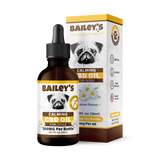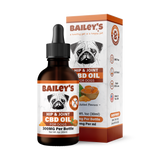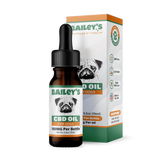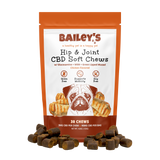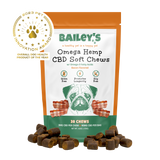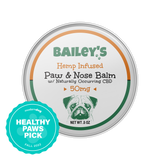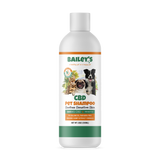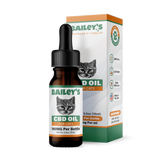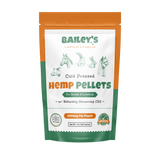Tomatoes for Horses: Feeding Advice

Feeding horses a well-balanced diet is essential for their overall health and well-being. While hay, grass, and grains are the staple foods in a horse's diet, certain fruits can also provide nutritional benefits when added to a balanced diet and supplement plan. One such fruit is tomatoes. In this article, we will explore the horse's typical diet, the risks and benefits of feeding tomatoes to horses, and how to introduce and monitor tomatoes in their diet. We will also discuss other fruit options to consider for your horse's diet.
Table of Contents
1. Understanding the Horse's Diet
A horse's diet should consist primarily of forage, such as hay or grass, which provides essential nutrients like fiber. Additionally, grains can be included to meet their energy requirements. While fruits may not be a significant part of a horse's diet, they can offer some benefits when given in moderation.
When it comes to the horse's diet, forage is the foundation. Hay or grass provides the necessary fiber that aids in digestion and keeps the horse's gastrointestinal tract healthy. It also helps prevent issues such as colic and ulcers. Horses are natural grazers, and their digestive systems are designed to process forage efficiently.

Grains, on the other hand, are often added to a horse's diet to provide the necessary energy for their daily activities. These grains, such as oats or barley, are rich in carbohydrates and can be easily digested by horses. However, it's important to note that grains should be fed in moderation and should not replace the bulk of the horse's diet, which should be forage-based.
1.1 The Role of Fruits in a Horse's Diet
Fruits, including tomatoes, can provide horses with supplemental vitamins and minerals. They can also add variety to their diet, making mealtime more enjoyable. However, it's important to remember that fruits should not replace the essential components of a horse's diet.
When it comes to fruits, moderation is key. While horses may enjoy the occasional treat of fruits like apples or carrots, it's important not to overdo it. Fruits should be seen as a supplement to the horse's diet, providing additional nutrients and variety. Feeding too many fruits can lead to an imbalance in the horse's overall nutrition.
Furthermore, not all fruits are suitable for horses. Some fruits, such as grapes or cherries, can be toxic to horses and should never be fed to them. It's crucial to research and consult with a veterinarian or equine nutritionist before introducing any new fruits into a horse's diet.
1.2 Nutritional Value of Tomatoes for Horses
Tomatoes are a good source of vitamins A and C, as well as potassium. These nutrients play vital roles in a horse's overall health. Vitamin A is essential for maintaining healthy skin, immune function, and vision, while vitamin C acts as an antioxidant. Potassium helps regulate fluid balance and nerve function.
Including tomatoes in a horse's diet can provide them with additional vitamins and minerals. However, it's important to note that tomatoes should be fed in moderation and as part of a balanced diet. While they offer nutritional benefits, they should not replace the essential components of a horse's diet, such as forage and grains. Just as with any supplemental food or product, even of the highest quality, it is important to know how much and how often to allow your horse to enjoy.

When feeding tomatoes to horses, it's crucial to remove the green parts, as they contain solanine, a toxic substance. Only the ripe, red parts of the tomato should be fed to horses. It's also important to introduce new foods gradually and monitor the horse's reaction to ensure they tolerate it well.
While fruits like tomatoes can offer some nutritional benefits to horses, they should be seen as supplements and not the mainstay of their diet. Forage, such as hay or grass, should always be the primary component, providing the necessary fiber and essential nutrients for a horse's overall health and well-being.
2. Risks and Benefits of Feeding Tomatoes to Horses
Feeding tomatoes to horses can have both health benefits and potential risks. Understanding these aspects will help you make an informed decision about incorporating tomatoes into your horse's diet.
When it comes to the health benefits of tomatoes for horses, there are several factors to consider. Tomatoes contain lycopene, an antioxidant that may help reduce the risk of certain diseases and inflammation. Lycopene has been shown to have anti-inflammatory properties, which can be beneficial for horses with conditions such as arthritis or joint inflammation. Additionally, the vitamins and minerals found in tomatoes, such as vitamin C and potassium, can support your horse's overall health and well-being.
However, it's important to be aware of the potential risks and take necessary precautions. While tomatoes can be a healthy addition to your horse's diet, they are part of the nightshade family, which contains a compound called solanine. Solanine can be toxic in large amounts and may cause symptoms such as gastrointestinal upset. Therefore, it's crucial to feed tomatoes in moderation and monitor your horse for any adverse reactions.
It's also worth noting that the way tomatoes are prepared and served can affect their safety for horses. For example, feeding raw tomatoes may increase the risk of digestive issues, as the high water content can lead to loose stools. To minimize this risk, some horse owners choose to cook or steam tomatoes before feeding them to their horses. This can help break down the cell walls and make the nutrients more easily digestible.
Furthermore, it's essential to consider the individual needs and preferences of your horse. Just like humans, horses can have different tolerances and sensitivities to certain foods. Some horses may enjoy the taste of tomatoes and have no adverse reactions, while others may not tolerate them well. It's always a good idea to introduce new foods gradually and observe how your horse responds.
Lastly, it's recommended to consult with a veterinarian or equine nutritionist before making any significant changes to your horse's diet. They can provide personalized advice based on your horse's specific needs, taking into account factors such as age, health condition, and activity level. They can also help you determine the appropriate portion size and frequency of tomato feeding to ensure your horse's nutritional requirements are met without compromising their well-being.
3. How to Introduce Tomatoes into Your Horse's Diet
When introducing tomatoes to your horse's diet, it's crucial to do so gradually and in a controlled manner. Here are some key steps to follow:
3.1 Choosing the Right Tomatoes
Opt for ripe, red tomatoes that are firm and free from bruises or blemishes. Organic tomatoes are often a good choice as they are free from pesticides and other chemical additives.
It is important to note that not all tomatoes are safe for horses to consume. Some varieties, such as green or unripe tomatoes, can be toxic to horses. Stick to ripe, red tomatoes to ensure the safety of your equine companion.
Additionally, consider the size of the tomatoes you choose. Larger tomatoes may be difficult for horses to chew and swallow, so it's best to select smaller ones that can be easily consumed.
3.2 Preparing Tomatoes for Your Horse
Wash the tomatoes thoroughly to remove any dirt or chemicals. This step is essential to ensure that your horse is not exposed to any harmful substances.
After washing, it's recommended to cut the tomatoes into small, bite-sized pieces. Removing the stems and leaves will make it easier for your horse to chew and digest the tomatoes. Horses have a sensitive digestive system, and cutting the tomatoes into smaller pieces helps prevent any potential choking hazards.
Some horse owners may choose to peel the tomatoes before feeding them to their equine companions. While this is not necessary, it can be done if you prefer to remove the skin. However, keep in mind that the skin of tomatoes contains valuable nutrients and fiber.
When preparing tomatoes for your horse, it's important to remember that moderation is key. While tomatoes can be a healthy addition to your horse's diet, they should not make up the majority of their meals. Always consult with a veterinarian or equine nutritionist to ensure that you are providing a balanced diet for your horse.
4. Monitoring Your Horse's Reaction to Tomatoes
Once you've introduced tomatoes into your horse's diet, it's important to monitor their reaction. Look out for signs of positive acceptance as well as any potential allergic reactions or adverse effects.

Tomatoes can be a nutritious addition to your horse's diet, providing essential vitamins and minerals. However, every horse is unique, and their reaction to new foods may vary. By observing your horse closely, you can ensure their well-being and make informed decisions about their diet.
4.1 Signs of Positive Acceptance
If your horse accepts tomatoes well, you may notice signs such as increased eagerness during mealtime, normal bowel movements, and overall good health. These are positive indicators that your horse is tolerating tomatoes well.
In addition to the physical signs, you may also observe changes in your horse's behavior. They may show excitement or enthusiasm when presented with tomatoes, eagerly reaching out for the treat. This positive response can be a clear indication that your horse enjoys the taste and texture of tomatoes.
Furthermore, a horse that tolerates tomatoes well may exhibit a shiny coat, strong hooves, and a healthy weight. These external factors can also serve as indicators of their overall well-being and acceptance of tomatoes in their diet.
4.2 Identifying Potential Allergic Reactions
While allergic reactions to tomatoes in horses are rare, it's still essential to be vigilant. Watch for signs such as skin rashes, hives, difficulty breathing, or signs of gastrointestinal distress. If you notice any of these symptoms, discontinue feeding tomatoes and consult a veterinarian.
Allergic reactions can manifest differently in horses. Some may develop skin irritations, such as redness or itching, while others may experience respiratory issues, like coughing or wheezing. It's crucial to pay attention to any changes in your horse's behavior or physical appearance after introducing tomatoes into their diet.
In some cases, horses may also show signs of gastrointestinal distress, such as colic or diarrhea, as a result of an allergic reaction to tomatoes. These symptoms should not be ignored and require immediate attention from a veterinarian.
Remember, it's always recommended to introduce new foods gradually into your horse's diet, including tomatoes. Start with small amounts and closely monitor their reaction before increasing the quantity. This cautious approach can help prevent any adverse effects and ensure your horse's well-being.
5. Other Fruits to Consider for Your Horse's Diet
In addition to tomatoes, other fruits can be incorporated into your horse's diet. These include:
5.1 Apples and Carrots: Traditional Choices
Apples and carrots are popular choices for horse treats and can be a healthy addition to their diet. Remember to feed them in moderation to avoid overconsumption of sugars.
5.2 Exploring Less Common Fruit Options
Other fruits like watermelon, berries, and bananas can also be offered as occasional treats. However, always introduce new fruits slowly and monitor your horse's reaction to ensure they tolerate them well.

